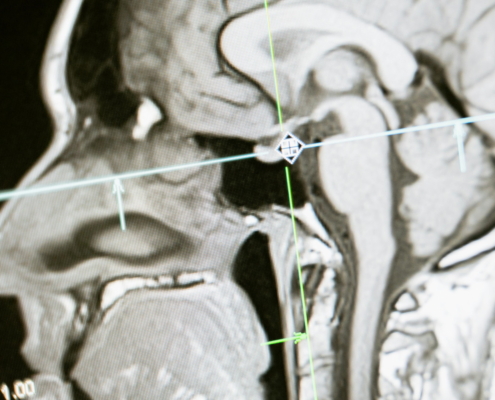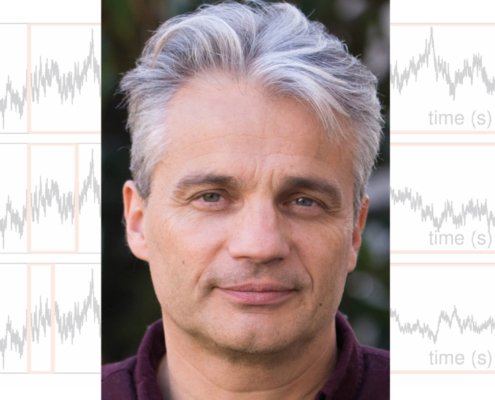Latest news
Slicing: a MUST for multisectoral communication
2 July 2025/by Ingrid ColleauNo more, no less: energy-efficient networks for 5G
24 June 2025/by I'MTechFrom Fossil to Flexible: Joulzen Gives Old Oil Tanks a Future
20 June 2025/by I'MTechPERSEUS makes a breakthrough for cell-free networks
18 June 2025/by I'MTechOncoelectronics: A spark in the fight against brain tumors
4 June 2025/by I'MTechBoosting tomorrow’s IoT networks
12 May 2025/by I'MTechAll our news

The industry of the future enters the metaverse
Digital, In the NewsThe metaverse is no longer limited to online video games and social interactions, it is now a key technology for industry. With the 5GMetaverse project, five Institut Mines-Télécom schools are looking to adapt the networks of the future to the needs of augmented and virtual reality. The main goal of the project is to develop concrete solutions to optimize industrial processes, remote assistance and human-machine collaboration.

Let’s take a walkthrough the wood, the material of the future
Energy & environment, In the News, MaterialsWood shows surprising and widespread promise, far beyond the field of construction. Five researchers from IMT Mines Alès have been focusing their work on this multifaceted material, and the questions raised when considering its use, both in terms of performance and durability.

Alexandra Vallet is taking the brain’s pulse
Health, In the News, PortraitThe fluid around our brain moves with our body’s pulses. Studies of this dynamic are offering new insights into the underlying mechanisms of neurodegenerative diseases. Researcher at Mines Saint-Étienne, Alexandra Vallet’s work is based on this cross-disciplinary approach. It focuses on how our brain’s mechanical properties and fluid-structure interactions influence its health and aging.

Digital intelligence: towards a smarter use of AI
Digital, In the News, SocietyDigital intelligence is a form of intelligence that allows us to use technologies such as artificial intelligence to good effect. But there are differences between these two concepts. Individuals can benefit from appropriate training in the use of technology. Aurélie Dudézert, professor at Institut Mines-Télécom Business School, tells us more about aspects of digital intelligence in the age of AI technologies.

The Cybaile Chair, securing AI tools for healthcare
Health, In the NewsThanks to AI tools, it is now possible to identify signs of disease in medical images in a robust and secure way. However, developing such tools requires access to large volumes of sensitive health data. How can we protect this data, and the tools that use it? These are the questions that Cybaile, the industrial chair in cybersecurity, AI and trust in healthcare, is trying to answer.

Augmented internal audits and digital transformation challenges
Digital, In the News, SocietyDigital technology is significantly changing auditing practices and the internal auditor profession. Among these new solutions, “augmented” internal audits are becoming increasingly popular. Nabyla Daidj, a research professor in strategy and management information systems at Institut Mines-Télécom Business School and head of the Information Systems Audit and Consulting (ACSI) major, explains how augmented internal audits work.

Descartes at the intersection between philosophy and mathematics
In the News, Scientific literacy, SocietyPhilosophy and mathematics come together in the work of René Descartes. Yet there are still many facets of Cartesian mathematics that remain little-known. In the book Descartes et ses mathématiques, edited by Olivia Chevalier, Research Officer at Institut Mines-Télécom Business School, she presents Descartes' mathematical thinking, along with other authors.

Digital twins for industrial systems: future allies for performance
Digital, In the News, IndustryTo achieve its mission, the Digital Twins for Industrial Systems Chair combines the efforts of three Institut Mines-Télécom (IMT) schools under one sponsorship chair. It provides a research framework for certain scientific and technical issues involved in use cases, performance, management and maintenance of these digital twins, with the support of three industrial partners.

Patrice Abry, winner of the 2024 IMT-Académie des Sciences Grand Prize
Digital, In the News, PortraitComplex systems specialist Patrice Abry played a key role in identifying the fractal nature of Internet traffic as early as 1998. The success of his work, carried out in collaboration with Daryl Veitch, sparked the launch of a series of research projects integrating theoretical advances and applications, particularly in cybersecurity, that have continued over two decades. We review a career that saw techniques evolve with the times, but in which fundamental constants remain.







